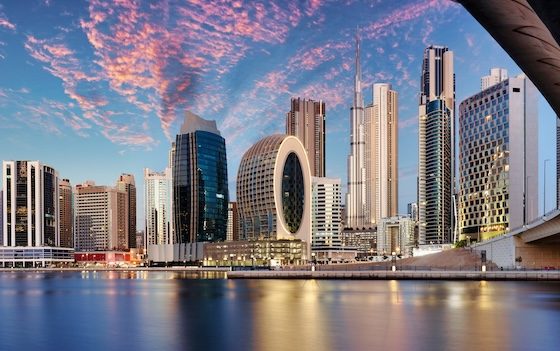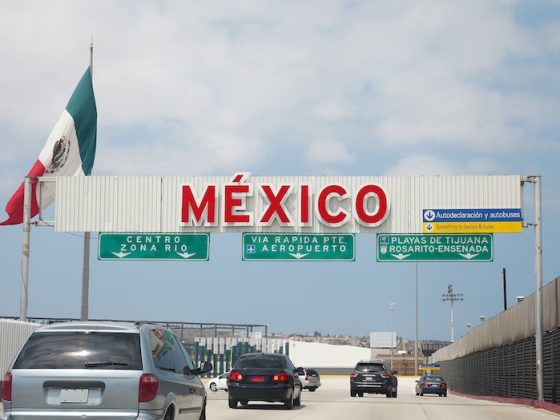In today’s interconnected world, diversifying our investment portfolios beyond domestic borders is more important than ever. Doing so broadens our financial horizons and equips us with the tools needed to navigate the ever-changing landscape of global finance.
Just as a savvy traveler knows the value of experiencing different cultures and cuisines, a wise investor understands the significance of diversification. A well-diversified portfolio reduces the overall risk of investments by spreading capital across various asset classes, sectors, and geographical regions. This approach ensures that when the performance of other investments cushions one market experiences turbulence, the impact on your overall portfolio.
Foreign markets offer a treasure trove of opportunities for investors seeking to capitalize on their growth potential and better manage risks. By venturing into international markets, investors gain access to many companies, industries, and economies that may not be available in their home country. Such exposure creates new avenues for capital appreciation and allows investors to tap into regions with different economic cycles, reducing the impact of localized market downturns.
In the following sections, we’ll explore the ins and outs of foreign market investing, helping you build a solid foundation for your global investment journey. Let’s dive in!
Understanding the Basics of Foreign Markets
Before setting sail on your international investment journey, it’s essential to understand the different types of foreign markets. Foreign markets are broadly classified into three categories: developed, emerging, and frontier.
- Developed Markets: Are characterized by mature, stable economies and well-regulated financial systems. Examples include the United States, Japan, and Western European countries like Germany and France. Investing in developed markets typically provides more stable returns, albeit with potentially lower growth prospects than emerging or frontier markets.
- Emerging Markets: Are in a state of rapid economic growth and development, accompanied by a burgeoning middle class and expanding industries. Countries like China, India, and Brazil fall into this category. While investments in emerging markets offer significant growth potential, they also come with higher risk due to political instability and market volatility.
- Frontier Markets: Represent the least developed and most high-risk investment destinations. Frontier markets include countries like Nigeria, Belize, and Bangladesh. Frontier markets can provide investors with outsized returns despite the elevated risks, as they often have untapped growth potential and unique investment opportunities.
Key Differences Between Domestic and Foreign Investing
When venturing into foreign markets, investors must be aware of several key differences compared to domestic investing.
These include:
- Currency Fluctuations: Foreign investments are subject to currency risk, as they are often denominated in a currency different from your home country. Exchange rate fluctuations can impact your investment returns, and it’s vital to consider this risk when making investment decisions.
- Regulatory Environment: Foreign markets may have different regulatory frameworks, disclosure requirements, and corporate governance standards. Understanding these differences is crucial to making informed investment decisions and managing risk.
- Market Access: Gaining access to foreign markets may require additional research, due diligence, and the use of specialized financial instruments such as ETFs, mutual funds, or ADRs.
Political and Economic Factors to Consider
Investing in foreign markets requires a thorough understanding of the political and economic landscape of the countries in question.
Factors to consider include:
- Political Stability: Countries with unstable political environments can be subject to abrupt policy changes, nationalization of industries, or even civil unrest, which can negatively impact your investments.
- Economic Growth: Assessing a country’s economic growth prospects, including factors such as GDP growth, inflation rates, and fiscal policies, can help identify opportunities for potential investment gains.
- Regulatory Environment: Understanding the regulatory climate in a foreign market is crucial to avoid potential legal or compliance issues that could impact your investments.
By understanding the basics of foreign markets and considering their unique risks and opportunities, investors can make informed decisions and develop a well-rounded international investment strategy.
Developing a Global Investment Strategy
Experienced financial explorers know that charting a successful course begins with understanding your unique investment profile, including assessing your risk tolerance and clarifying your investment goals.
Risk tolerance varies from person to person and depends on age, financial situation, and investment horizon. Generally, younger investors with a longer time horizon can afford to take on more risk to pursue higher returns, while older investors nearing retirement may prefer a more conservative approach.
Your investment goals should also be pivotal in shaping your global investment strategy. Whether you seek capital appreciation, income generation, or capital preservation, identifying your objectives will help you select the right mix of foreign investments that align with your goals.
Diversification: The Importance of a Balanced Portfolio
A well-balanced portfolio is the cornerstone of any successful investment strategy. Diversification across different asset classes, sectors, and regions helps to reduce risk and enhance potential returns. In the context of foreign investments, this means allocating a portion of your portfolio to international equities, bonds, and other investment vehicles.
To achieve optimal diversification, consider the following guidelines:
- Geographic Diversification: Allocating your foreign investments across various regions, such as North America, Europe, Asia, and emerging markets, can reduce your exposure to regional risks and helps capture growth opportunities across the globe.
- Sector Diversification: Spreading your investments across different industries and sectors, ensuring you are not overly concentrated in any one area, can help protect your portfolio from sector-specific downturns and capitalize on industry-specific growth trends.
- Asset Class Diversification: Diversifying across different asset classes, such as stocks, bonds, real estate, and commodities, can further spread risk and potentially enhance returns.
Incorporating Foreign Investments into Your Existing Portfolio
Integrating foreign investments into your portfolio can be smooth if approached methodically.
Here are a few steps to guide you:
- Review Your Current Portfolio: Begin by analyzing your existing investments to identify any gaps in your diversification strategy. Determine what percentage of your portfolio is currently allocated to foreign investments and evaluate whether this allocation aligns with your risk tolerance and investment goals.
- Choose the Right Investment Vehicles: Select the appropriate financial instruments for investing in foreign markets. Exchange-traded funds (ETFs), mutual funds, American Depository Receipts (ADRs), and international bonds are popular choices for gaining exposure to global markets. Each vehicle has pros and cons, so carefully consider which option best fits your needs and preferences.
- Rebalance as Necessary: Regularly review and rebalance your portfolio to ensure it remains aligned with your risk tolerance and investment objectives by adjusting your allocation to foreign investments and rebalancing among domestic assets.
Navigating Challenges in Foreign Market Investing
Political and Regulatory Risks
Investing in foreign markets often comes with unique challenges, including political and regulatory risks. To successfully navigate these challenges, keep a close eye on the political landscape in the countries where you invest.
Stay informed about upcoming elections, policy changes, and geopolitical events that may impact your investments. Additionally, familiarize yourself with the regulatory environment in each market, as differing disclosure requirements, corporate governance standards, and legal frameworks can affect your investment decisions and risk exposure.
Currency Conversion and Fluctuation Risks
Currency risk is an inherent part of foreign market investing. Changes in exchange rates can either amplify or diminish your investment returns. To mitigate currency risks, consider the following strategies:
- Diversify across multiple currencies: By investing in assets denominated in various currencies, you can reduce the impact of any single currency’s fluctuations on your portfolio.
- Use currency-hedged funds: These funds employ hedging strategies to minimize the impact of currency fluctuations on returns, allowing you to focus on the underlying investment performance.
- Monitor exchange rate trends: Keep an eye on macroeconomic factors and global events that may influence currency movements and adjust your investment strategy accordingly.
Tax Implications for International Investments
Understanding the tax implications of international investments is crucial for optimizing your returns. Different countries have varying tax laws and regulations, which can affect the taxation of investment income, capital gains, and dividends.
You can effectively navigate these complexities by consulting with a tax professional or financial advisor knowledgeable about international taxation. They can help you understand your tax obligations, identify potential tax-saving strategies, and ensure compliance with relevant tax laws.
Overcoming Language and Cultural Barriers
Language and cultural barriers can also present challenges when investing in foreign markets.
Overcome these obstacles by considering the following tips:
- Leverage local expertise: Engage with local financial advisors, analysts, or fund managers who have in-depth knowledge of the regional market and can provide valuable insights.
- Use translation tools: Utilize translation software or services to help you decipher financial documents, news, and research materials in foreign languages.
- Familiarize yourself with cultural norms: Understanding the cultural context of a foreign market can help you make better-informed investment decisions and avoid potential misunderstandings.
Last Words
As we conclude our journey through foreign market investing, it’s essential to reflect on both the rewards and risks associated with venturing beyond our domestic borders.
The benefits of international investing include access to a broader range of growth opportunities, better risk management through diversification, and the potential for enhanced returns.
At the same time, investors must carefully navigate the unique challenges posed by currency fluctuations, political and regulatory risks, and tax implications, among other factors.
The Importance of Staying Informed and Adaptable
In the dynamic world of global finance, staying informed and adaptable is paramount to success. Continually educate yourself about the countries, industries, and companies you invest in, and remain vigilant about any political, economic, or regulatory changes. This way, you can make timely adjustments to your investment strategy, seize emerging opportunities, and mitigate potential risks.
As you embark on your international investment adventure, remember that fortune favors the bold and the well-prepared. Embrace the spirit of exploration and discovery and dare to venture into uncharted financial territories.
Armed with the knowledge, strategies, and insights shared throughout this guide, you are well-equipped to conquer the world of foreign market investing and reap the rewards of your global investment endeavors.
Subscribe to Escape Artist Insider Magazine for In-depth Coverage
If you enjoyed this article and are interested in more in-depth articles on investing in foreign markets and other offshore investing topics, then you’ll love the Escape Artist Insider Magazine. It’s a monthly publication jam-packed with lots of information. Head over to THIS LINK to subscribe.
Contact Author
"*" indicates required fields
Stay Ahead on Every Adventure!
Stay updated with the World News on Escape Artist. Get all the travel news, international destinations, expat living, moving abroad, Lifestyle Tips, and digital nomad opportunities. Your next journey starts here—don’t miss a moment! Subscribe Now!










